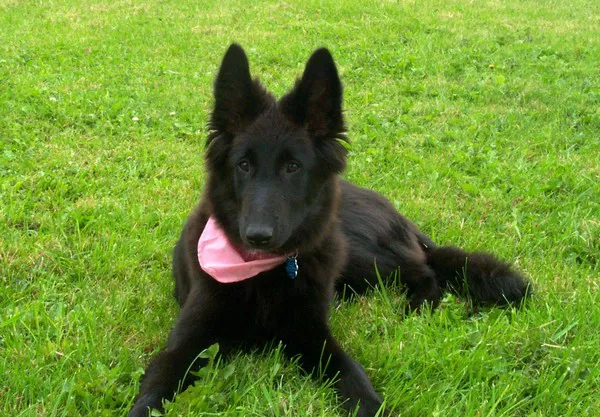Sphynx cats are well-known for their distinctive appearance, characterized by their lack of fur, large ears, and wrinkled skin. These cats have captivated the hearts of many pet lovers around the world with their affectionate personalities and striking look. However, despite their many positive qualities, there are certain downsides to owning a Sphynx cat that potential owners should carefully consider. This article explores the negatives of Sphynx cats, including their unique care requirements, health concerns, behavioral challenges, and more.
1. Frequent Grooming and Skin Care
One of the first things people notice about Sphynx cats is their lack of a traditional fur coat. While this may seem like a low-maintenance feature, it actually requires a significant amount of care and attention. The absence of a fur coat means there is no natural barrier to absorb oils from the skin. As a result, Sphynx cats produce more oil than most other cats, which can build up on their skin and make them appear greasy. Regular grooming is essential to keep the cat’s skin healthy.
Skin Care Requirements
Sphynx cats require regular bathing, typically every 1-2 weeks, to remove the excess oil that accumulates on their skin. If not cleaned regularly, this oil can lead to skin infections, acne, or rashes. The bathing process involves using special cat shampoos that are gentle yet effective at breaking down the oils. Additionally, their ears, which are large and prone to wax buildup, require cleaning to prevent infections. This grooming routine can be time-consuming and inconvenient for some pet owners.
Skin Sensitivity
Another important consideration is the skin sensitivity of Sphynx cats. Their skin, exposed to the elements without a fur coat, is more susceptible to sunburn and cold weather. Owners must be careful to avoid direct sunlight for extended periods, as Sphynx cats can suffer from painful sunburns. Similarly, in cold weather, these cats may require additional warmth and clothing to keep them comfortable. Sphynx cats are not built for extreme temperatures and may need to stay indoors during hot or cold spells, making them less suited for owners who live in areas with extreme climates.
2. Health Problems
Like all breeds, Sphynx cats are prone to specific health conditions. While they are generally healthy cats, there are some issues that potential owners should be aware of.
Heart Disease: Hypertrophic Cardiomyopathy
One of the most serious health concerns for Sphynx cats is hypertrophic cardiomyopathy (HCM), a condition that affects the heart. HCM is a genetic disorder that causes the heart muscles to thicken, leading to heart failure if not treated. This condition can be difficult to detect early, as affected cats may not show symptoms until the disease is advanced. Regular veterinary check-ups and heart screenings are important for detecting HCM early and managing its progression. However, even with regular monitoring, it can still pose a risk to the cat’s health and lifespan.
Skin Infections and Allergies
Due to their lack of fur and exposed skin, Sphynx cats are also more prone to skin infections and allergic reactions. They may develop rashes, fungal infections, or bacterial infections, especially if their skin is not cleaned properly. Their sensitivity to allergens, such as dust mites, pollen, and certain chemicals, can lead to skin irritations or respiratory issues. This can require frequent vet visits and medication to manage flare-ups, which can become an ongoing issue for some owners.
Respiratory Issues
Sphynx cats are also more likely to experience respiratory problems than other breeds. Their large ears and facial structure can sometimes make them more susceptible to ear infections and sinus issues. Additionally, because they lack a thick fur coat, they may be more prone to developing colds or other upper respiratory infections. Ensuring that your Sphynx cat is kept in a clean, dust-free environment and receives appropriate medical care can help prevent these health issues from becoming too problematic.
Gastrointestinal Problems
Sphynx cats, like many other purebred cats, can also suffer from gastrointestinal problems. Some may have sensitive stomachs or food allergies that lead to diarrhea, vomiting, or other digestive issues. This requires careful attention to their diet and regular monitoring of their health. A vet may recommend a specialized diet to help manage these problems, which can sometimes be expensive.
3. High Maintenance in Terms of Time and Attention
Sphynx cats are extremely affectionate and sociable creatures. While this can be a positive trait, it also means they demand a lot of attention and care from their owners. Unlike more independent breeds, Sphynx cats are prone to separation anxiety if left alone for long periods of time. They thrive on human interaction and enjoy being involved in family activities.
Separation Anxiety
Because of their strong attachment to their owners, Sphynx cats may experience separation anxiety when left alone. This can lead to destructive behaviors such as excessive meowing, scratching furniture, or even urinating outside the litter box. If you are away from home frequently or for extended periods, this breed may not be the best choice. Owners who are home more often or who have a second pet to keep the Sphynx company are better suited for this breed.
Demanding Attention
Sphynx cats are known for their playful and energetic nature. They often seek attention from their owners and enjoy engaging in interactive play. However, their constant need for stimulation can be overwhelming for some pet owners. Sphynx cats require a lot of mental and physical engagement to stay happy. This means that owners need to invest time in playing with them, providing them with toys, and ensuring they do not become bored or stressed. If left to their own devices for too long, Sphynx cats may develop behavioral problems.
4. Cost of Ownership
Owning a Sphynx cat comes with its share of costs, many of which are related to their specific care needs. From regular grooming to veterinary care for potential health problems, Sphynx cats can be more expensive to care for than other breeds.
Veterinary Care
As mentioned earlier, Sphynx cats are prone to certain health issues such as heart disease, skin infections, and respiratory problems. This can result in frequent vet visits and higher medical costs. Sphynx owners may need to schedule regular check-ups and screenings to monitor their cat’s heart health and general well-being. Additionally, some owners opt for pet insurance to help cover the costs of medical treatment, but this can add an extra expense to the overall cost of ownership.
Grooming and Supplies
Despite not needing traditional grooming for a fur coat, Sphynx cats require specialized care for their skin, ears, and hygiene. The cost of grooming supplies, including cat shampoo, ear cleaning products, and skincare items, can add up over time. If you choose to have your Sphynx professionally groomed, this will further increase the cost of ownership. Additionally, Sphynx cats may require specific types of bedding or clothing to keep them comfortable, especially in colder climates, which can also contribute to their overall care costs.
5. Behavioral Challenges
While Sphynx cats are known for their affectionate and playful nature, they can also present behavioral challenges that some owners may find difficult to manage.
Loud and Talkative
Sphynx cats are not typically quiet cats. They are known for being vocal and will often communicate with their owners through meowing or chirping. While this can be endearing to some, it may become annoying or overwhelming for others, especially in households where peace and quiet are valued. If you are looking for a more low-maintenance or quiet breed, a Sphynx cat may not be the best fit.
Climbing and Scratching
Another challenge with Sphynx cats is their tendency to climb and scratch. Due to their high energy and curiosity, they may engage in behaviors such as climbing onto shelves, counters, and furniture. This can lead to scratched furniture or other damage to your home. Providing plenty of scratching posts and interactive toys can help, but it may still be a challenge to keep them from engaging in these behaviors.
Socialization Issues
Though Sphynx cats are generally friendly and sociable, they can have some trouble adjusting to new environments or unfamiliar people. If not properly socialized from a young age, they may become shy or anxious around strangers or other pets. This can be particularly problematic if you have other animals in the home, as a Sphynx cat may not get along well with them unless given proper introductions and time to adjust.
Conclusion
Sphynx cats are undeniably fascinating and unique pets, but they come with their own set of challenges that potential owners should carefully consider. From the extensive grooming and skin care requirements to the higher cost of ownership, Sphynx cats require a dedicated and responsible owner who can meet their needs. Additionally, their health issues, behavioral traits, and need for constant attention make them a breed that may not be suitable for everyone.
Before adopting a Sphynx cat, it is essential to do thorough research and evaluate whether this breed fits your lifestyle, living situation, and ability to provide the necessary care. While Sphynx cats can make wonderful companions for the right person, their unique needs and potential health concerns should not be underestimated.
By understanding the negatives associated with owning a Sphynx cat, you can make an informed decision and ensure that both you and your pet will have a happy and healthy life together.
Related Topics:




















